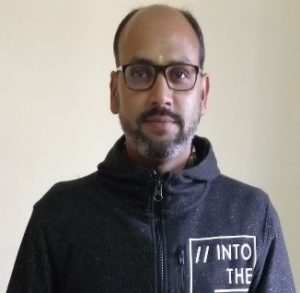Dr. Upendra Sharma started his independent research in the fall of 2014, and his group research focus involves transition-metal-catalyzed remote C-H activation/functionalization under thermal/light conditions. His group also works in the area of plant product chemistry. Mainly his group is looking for new antimalarial molecules either through metal-catalyzed modification of quinolines or from natural sources. In 2016, Dr. Sharma got the Thieme Chemistry Journal Award and Manjushree Pal Memorial Award for Best Oral Presentation from Ethanopharmacology Society of India, Kolkata in 2017. Currently, he is an Early Career Advisory Board member in the Asian Journal of Organic Chemistry. Currently, Dr. Sharma is editing an issue in Frontier in Chemistry on the special topic on C-H activation/functionalization. He has published >120 research articles in reputed international journals and filed four patents to date.
Read his Emerging Investigator article “α-Oxygenation of N-Aryl/Alky Heterocyclic Compounds via Ruthenium-Photocatalysis” and read more about him in the interview below:
How do you feel about Reaction Chemistry & Engineering as a place to publish?
It is a great experience to publish in RCE as this journal has a unique scope, and it’s always great to follow this journal as most of the published articles contain in-depth information on respective topics.
What aspect of your work are you most excited about at the moment and what do you find most challenging about your research?
Selective functionalization of C-H bond in complex/natural molecules under photocatalytic conditions is most the exciting and challenging. Undoubtedly, we and others developed various catalytic methods, and the process is continuing, but applying these methods in a complex setup is always challenging.
In your opinion, what are the most important questions to be asked/answered in this field of research?
Natural processes continuously happening in Mother Nature are complex and inspirational for synthetic chemists. So the central question I always ask is how we can mimic these reactions to synthesize valuable molecules?
Developing photocatalytic conditions for most challenging reactions like functionalization of complex/natural molecules is the major question we wish to address in the next 5-10 years.
Can you share one piece of career-related advice or wisdom with other early career scientists?
Never follow any advice, just follow your inner voice and passion for research.
Keep up to date with Upendra and his research by visiting his group website here.











